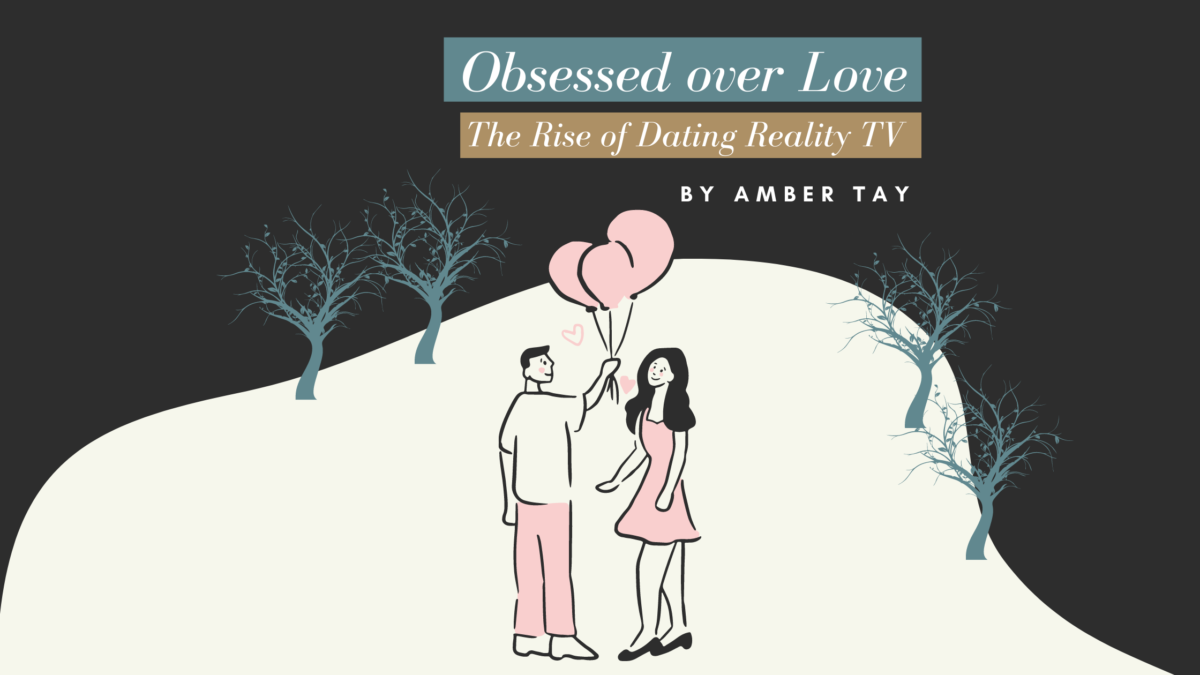You name the dating show, I’ve probably watched it. Love Is Blind, Terrace House, Single’s Inferno, and of course, the newest season of Love Island Australia. Although dating reality TV used to be seen as a form of guilty pleasure, this does not seem to be the case now as celebrities and Netflix users alike are admitting to binge-watching such ‘trashy’ shows. The most obvious example of this phenomenon is the global hype early this year caused by Single’s Inferno, a Korean dating reality show centered around nine young singles searching for love on a deserted island. Audiences’ obsession over the show exploded on the internet, with the contestants’ Instagram accounts increasing in followers rapidly and viewers creating TikToks to express their own opinions on the weekly episodes. Though this may seem to be a sudden phenomenon to many, the popularity of dating reality TV is one that has been slowly gaining attention from audiences ever since reality TV’s prominence in the early 2000s.
History of Reality TV
Reality TV is a television programming genre that can be identified by its documentation of unscripted real-life situations, with its focus on ordinary unknown people instead of celebrities or professional actors. Though its beginnings can be traced back to the early 1970s, Reality TV did not have its global outreach until the early 2000s. These competition-based Reality TV such as Idols and Masterchef were often more focused on the talents of contestants, while the late 2000s “docusoap” series such as Keeping Up With the Kardashians became more focused on the personal lives of certain individuals.
For producers, reality TV is a perfect formula for the ever-growing capitalist society that demands for TV series to be produced at a breakneck speed while still being fun and engaging. All they have to do is invite a few good-looking contestants with big personalities and watch the drama and romance unfold through surveillance cameras. In turn, audiences tend to tune in to reality TV due to the perceived authenticity of the contestants on the show. Since the show’s unscripted, the contestants’ actions and reactions must be genuine as well, right? Probably not, but that’s an article for another time.
Why is there such an obsession with dating reality tv nowadays?
The rise of dating reality TV can be seen to be similar to the looming presence of social media in our everyday lives. In a digital age where it becomes increasingly difficult to differentiate between fantasy and reality, reality shows create a fantastical space where all elements within it interact with one another in seemingly relatable and authentic ways. As suggested by Mark Andrejevic in The kinder, gentler gaze of Big Brother: Reality TV in the era of digital capitalism, these shows can be seen as a metaphor for the “pathologies of a society in which the public sphere has been eclipsed by the private one.” In other words, social media and advanced technologies have caused the lines between public and private space to blur as a result, and this lack of privacy is becoming one that we willingly allow into our lives without being aware of the possible consequences of such actions.
Nevertheless, differing from ordinary reality TV programs which often follow the daily activities of ordinary people, dating reality TV shows can be seen more as social experiments that take this concept one step further. Instead of the camera crew flying to specific locations in order to follow these contestants’ everyday lives, contestants from different walks of life are brought into an enclosed location where they are forced to interact with one another for a set amount of time. Stakes are often heightened with challenges, eliminations, and finale prizes—all of which serve to create increased friction between contestants. Moreover, contestants invited onto such dating shows are often good-looking, which makes it both fascinating and entertaining to watch as they go through the same highs and lows everyone experiences in the dating game.
When it comes to reality TV, throwing romantic love into the equation is like pouring gasoline into a fire. For some, watching people fall in love sounds like a romantic fairytale in (seemingly) reality. As we see contestants awkwardly flirt with one another or use subtle actions to try to gain their crush’s attention, the emotions these contestants experience are ones many can relate to, and thus make it easy for us to connect to these contestants. For others, the dating element can further increase the friction between contestants and as a result, stirs up more drama. As the saying goes, love makes you go crazy. Furthermore, the use of surveillance and “confessionals” (where contestants provide their own thoughts or context to on-screen events) creates an illusion of intimacy between the contestants and the viewers. Thus, allowing viewers to believe that the on-screen portrayals of contestants are their authentic selves.
Conclusion
Dating reality tv will always be a television genre that I have a guilty pleasure for. With a drastic increase in the popularity of dating reality shows on Netflix, there perhaps could be something to say about people’s wish for connections and intimacy in a world overrun by the COVID-19 pandemic. Nevertheless, when viewed at a distance, it’s easy to forget that the people we observe are humans just like the rest of us. Thus, though it is entertaining to gossip about the contestants and their love lives, it is important to understand that at the end of the day, reality TV is perhaps closer to entertainment instead of reality.


